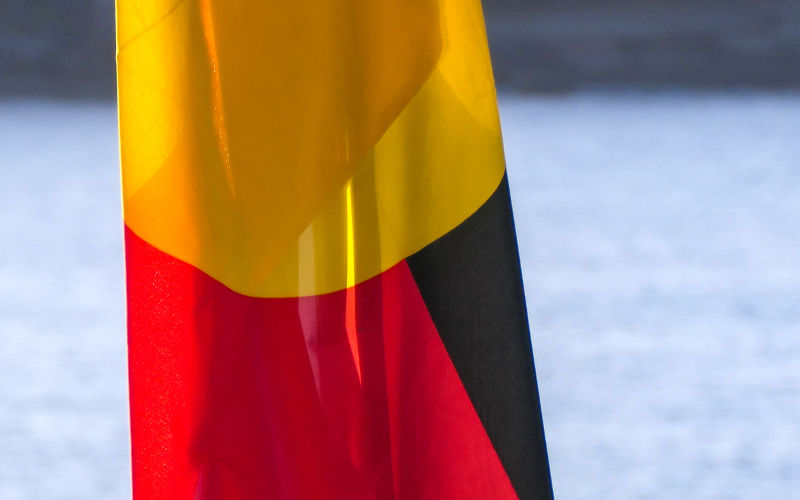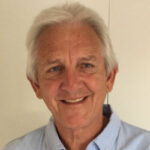The deputy prime minister Richard Marles was asked by Insider’s host David Speers if the voters of Australia were right to roundly reject the constitutional recognition of Indigenous peoples and the Voice to parliament. Of course they were right, said Marles, they’re always right. In a press conference and later during question time in parliament, Anthony Albanese said he respected the outcome of the referendum, pointing out that it’s wonderful that democracies like Australia can have such referendums without the disorder we see in other countries.
Meanwhile, Indigenous leaders have entered a week of silence to reflect on their feelings, what to do next, and perhaps what they want to say to the majority of non-Indigenous voters who rejected their kind and generous invitation to join them on a journey of reconciliation. Like Indigenous communities across Australia who voted overwhelmingly Yes, how must they feel in a settler colonial society that continues to deny them their rightful place in Australia, even though they are the decedents of the original inhabitants of this nation?
Speaking about his new book, Killing for Country, that deals with the mass murder of Indigenous people by the white-led Native Police during the Frontier Wars, and the morally abject discussions that surrounded them, journalist David Marr notes that much of the rhetoric heard during the referendum campaign is a continuation of the rationalisations and justifications of earlier generations of colonists.
Only this time the head of the belittling crowd is an Indigenous person, Jacinta Nampijinpa Price. Price was elected by mostly white people in the suburbs of Darwin and Katherine, and later supported mostly by non-Indigenous people. She has shot to political prominence on the back of such support. When Price denied the impact of colonisation on Indigenous people, she was speaking to a non-Indigenous crowd of whooping supporters, this time the inner circle of the overwhelmingly white National Party. Let’s be clear, Price does not speak for Indigenous people, but she does for conservative voters who want to see the retention of the status quo. The absence of any sensitivity toward her Indigenous counterparts, the general lack of shame or the merest hint of self-reflection is matched only be her and her party’s campaign mis- and dis-information.
Marcia Langton is right when she says that the message contained in the Uluru Statement of the Heart was poisoned. It was further made toxic by Price’s post-referendum claim (not for the first time) that Australia is not a racist country. She clearly has little idea of what racism means in practice. It doesn’t take long to realise that racism is rampant in Australia. Just think for a second to what countless Indigenous people themselves say of how they experience life in Australia. Think too of what happened to Adam Goodes and Stan Grant. Think at a structural level of the ongoing mass imprisonment, child removals, mortality rates and ill health. The idea that the Voice would divide Australia when it is patently already so, is beyond absurd.
There are many entrenched divides in Australia, as the demographics around the referendum results show. Age, education, income levels, rural/city among other factors revealed their hand, as did the power of the Murdoch media. Is it any wonder that Queensland was the leading No state given that state’s Soviet-like domination of Murdoch newspapers? The fact is that it was always easier to sow the seeds of doubt, however silly, rather than act on courage and vision of a better future. The gullibility of many sections of Australian society – particularly in the face of increasingly Trumpian tactics – is breathtaking. That coupled with endemic racism (even though this is denied by the conservatives) is a lethal brew indeed.
The referendum result was viewed around the world with shock and disbelief. Despite all the self-serving protestations, we are indeed seen as the settler colonial society that we are, albeit a jolly, beachy one. So, when I hear that supposedly unifying song which starts with “We are one, but we are many….”, it makes me want to gag.
My heart goes out to the majority of Indigenous Australians who supported the Yes campaign and all their supporters. The only silver lining is that a significant chunk of Australians voted in favour and there appears to be some determination to push for a treaty and truth telling, as well as significant measures to close the gap. For Indigenous people during this week of silence, it’s yet another day in the colony.
Finally, the Australian voters are not always right, just as those who supported the Brexit campaign were ill- informed and now live with regret. I’m also sorry to say that even though I acknowledge the referendum outcome, I certainly don’t respect it. How can I, given the hurt it has caused?
*Title of a book by Indigenous writer, Chelsea Watego, published by Queensland University Press, 2021.
Adjunct Professor, School of Health Sciences and Social Work,
Griffith University (Gold Coast Campus).
Adjunct Professor, Southern Cross University, Faculty of Business, Law and Arts.

